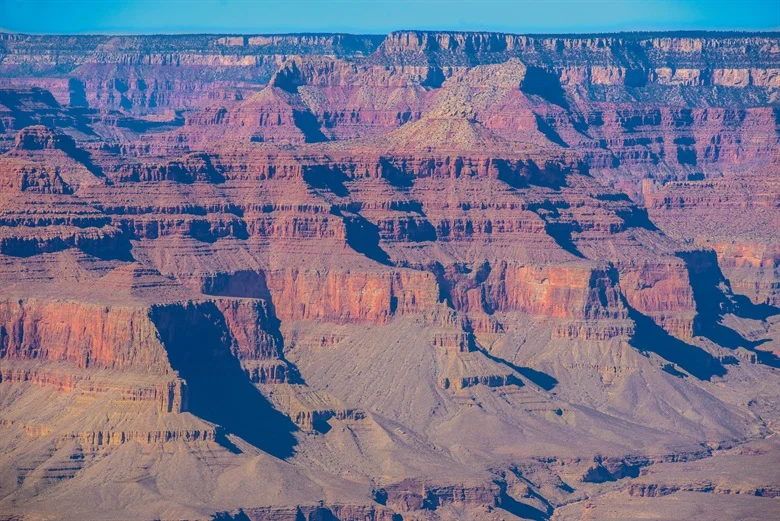I was raised by my parents, my father in particular, to be as much like them as possible and to share their aspirations as my own. It is no accident that I became an architect, as did my brother
Read MoreBefore about 500 BC everybody on earth believed that the Earth was flat. There may have been a few people who wondered why ships disappeared over the horizon, but the conventional wisdom of the time was that they fell of the edge of the Earth. How they managed to rationalise the reappearance of these ships is not known.
Read MoreOne of the four main themes of these essays is the connectivity of knowledge. There are already a few of these on this website. To introduce the theme I have invented the knowledge fan. This takes a fairly broad subject, in this case the Age and History of the Earth, and
Read MoreNothing works perfectly. Not even evidence based science. In fact anything that humans do is bound to be infused with imperfection. The theme will look at all the ways we get it wrong, a sort of comedy of errors, from cheating to cognitive bias and from failing to observe the rules of evidence to science denial.
Read MoreIt wasn’t until my mid fifties that I discovered something really important about friendship. Until that point, and without realising it, I had surrounded myself with people who were most like me. Not exclusively though, just mostly. I didn’t give it much thought, probably because it’s the most natural thing to do.
Read More"Everybody is a genius. But if you judge a fish by its ability to climb a tree, it will live its whole life believing that it is stupid."
Albert Einstein
Read MoreSophie Germain is a hero to me not so much because of her work in elasticity and number theory, although that was heroic, but because of her determination when every part of her environment was against her ambition. It’s a wonderful example of the pursuit of knowledge against the odds and even better, for its own sake.
Read MoreYou walk into a room occupied by two people. You force the first person to exchange clothes with you, then you force that person to exchange clothes with the second person. You then exchange clothes with the second person, and leave the room as the only person with his original clothes on. Although it is not strictly true that you haven’t been changed at all by the experience, in human terms you have just been a catalyst.
Read MoreWhat this basically means is that by squeezing or stretching a crystal you can generate electrical energy. Conversely, if you introduce electrical energy to a crystal it will flex. These two phenomena, called the piezoelectric effect, allow crystals to be used in a wide variety of applications
Read MoreWerner Heisenberg discovered something amazing about how sub atomic particles behave and the consequences of trying to observe them.
Read MoreThis is a brilliant and wide-ranging conversation about knowledge. I don't need to add anything much because it ties in so well with the point of this website its an hour long but worth every second.
Read MoreThere's fission, and then there's fusion. These two things are similar in some ways and completely different in others. Both describe how an element changes to another element and in so doing releases energy. What makes them do this and the circumstances in which they are able to do it is what makes them so very different.
Read MoreWhen I was a kid I was always being told off for not doing my homework. I would try to explain to teachers that I had been ill, or a plane had crashed into our back garden, or that my pet tarantula had died, but they were unwilling to accept my reasonable explanations. Much later in life when I understood more about cognitive bias, I realised
Read MoreA small boy accompanies his mum and dad to the railway station every weekday for several years, to wave his dad off to his job in the city. Many years later…
Read MoreAnalogies and thought experiments are really useful ways to gain insights into something we are trying to understand better. They can sometimes bypass the boring details or the hard to understand intricacies of a subject, and by posing scenarios that are either
Read MoreThe Colorado River is the 46th longest in the world at 2,330 km and starts almost from the centre of the country. Its sourse is about 3 kilometres above sea level at the La Poudre Pass and discharges eventually into the Gulf of California at a rate of about an olympic swimming pool ever two seconds. This sounds like a lot but it really isn't.
Read MoreImagination is more important than knowledge. For while knowledge defines all we currently know and understand, imagination points to all we might yet discover and create. Albert Einstein
Read MoreItems of knowledge only very rarely exist in isolation from all the other things we know. In fact almost all knowledge resides in an intricate network of connections, much like each neuron in our brains connecting to thousands of others, and one of the consequences of these interconnections is validation.
Read MoreWe’ve always measured distances to things, long before we ever reached out to the stars. From setting out where the foundations of a building will go, to drawing an accurate coastline or working out the height of a mountain, we have found ingenious ways to measure things.
Read MoreFind a pencil and sit down opposite something vertical in your room, like the mullion of a window. Hold the pencil out at full stretch vertically in front of you, close one eye and line the pencil up with the mullion. Leave the pencil exactly where it is, then switch eyes.
Read More


















